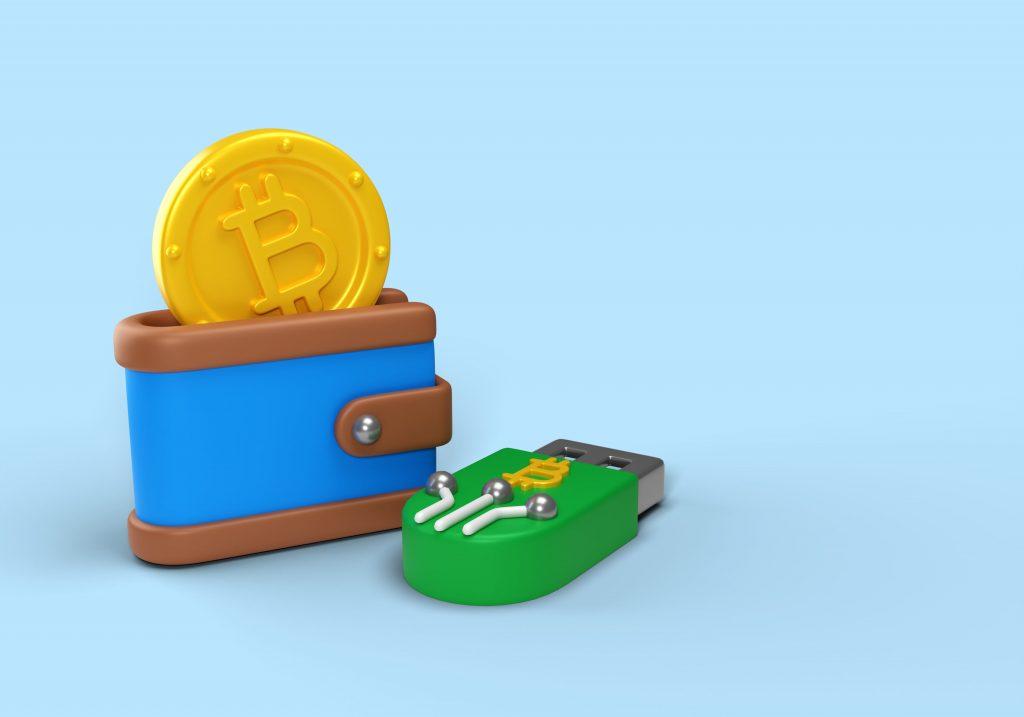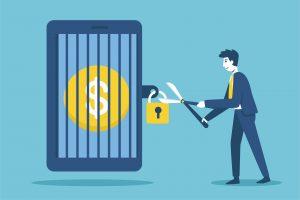The hype of cryptocurrency is rapidly growing with time. With more people being interested in cryptocurrency, venturing into the realm of digital currency and crypto is also increasing. However, if you’re a crypto enthusiast and want to trade crypto , you must know about how the components of crypto wallets work.
With multiple cryptocurrencies in the market, consisting of Ethereum, Bitcoin, Ripple, and many more, several crypto wallets are available. But the question comes up: what is a crypto wallet, and how do crypto wallets work? To help with that, here is all you need to know about the crypto wallet.
What is a Crypto Wallet?
Before knowing how a free crypto wallet works, let’s first look at what a crypto wallet is.
A software program that carries private and public keys that help locate your cryptos in the blockchain is known as a cryptocurrency wallet. Your public and private keys are unique to you only. The wallets are pretty similar to your physical wallet at the primary level. Like you put your cash and cards in your wallet and secure them; similarly, you can store your cryptos in your crypto wallet.
These crypto wallets provide access to customers from everywhere, mainly in the form of software. You have to download and install the cryptocurrency wallet on your device. But does your crypto grow in a wallet? Your crypto will grow as usual while it is kept in your wallet. Your wallet is just a way of access to your cryptos.
Understanding how crypto wallets work
If you are wondering about “Do I Need a Wallet for Cryptocurrency?” Yes, you do. As mentioned earlier, those crypto wallets are like your physical wallets; you can only get the basic idea from the same. The working principles of both wallets are way different.
Cryptocurrencies are pieces of data that are kept in a database; they are not “stored” anywhere. Cryptocurrency wallets work with blockchain technology to store your cryptos. These pieces of information are dispersed across the database; nevertheless, the wallet locates all the pieces connected to your public address, adds up the total for you, and shows you in your app.
To deal with cryptocurrencies, you need your private key and crypto wallet address, commonly known as your public key. To understand the public keys, think about your bank account number, which is unique to you. While transferring or receiving money, you can give out your bank account number to other persons or organizations. Similarly, to receive the cryptocurrency, you may share your public key, which is your wallet’s address.
Your crypto wallet’s private key is private, much like your bank account password or the PIN for your debit card. A private key is a password that gives you access to your cryptocurrency. Sharing your PIN with just anyone would allow them access to your bank account; therefore, you shouldn’t do that unless it’s an emergency.
You direct your bitcoin sender to a specific crypto wallet address generated by your wallet whenever you wish to obtain cryptocurrency, whether by buying it or receiving it as a gift.
Please note that your bitcoin coins don’t reside in your wallet; they exist on the blockchain. The cryptocurrency wallet stores and secures the details of your public and private keys, representing your ownership of the cryptocurrency as it does not exist in any physical form. Your wallet locates your crypto asset in the blockchain using your two keys. You may transmit or receive bitcoin using either of these keys while completely encrypting your private key.
As told earlier, these are only wallets to which you own the keys. You’ve probably heard “not your keys, not your crypto” before. This sentence emphasizes the significance of protecting your cryptocurrency.
But what if you lose your crypto wallet keys? Does that mean you lose all your crypto assets? In such cases, how do I back up my crypto wallet? Follow the simple steps for the same.
If you’re using a software wallet-
- Form a new wallet
- Set up the wallet with a seed phrase
- Create a new seed phrase
- Find your seed again
If you’re using a hardware one,
- Export the unique private keys.
- Create the file path
- Look for the wallet backup file
- Store the file in a secure place.
Types of Crypto Wallets

Several cryptocurrency wallet solutions are available that you may provide to the market, depending on what consumers want to accomplish with cryptocurrency.
For instance, many long-term cryptocurrency investors want to keep their wallets open for a long time. Because of this, individuals can choose a wallet with extraordinary security measures. Users that actively trade cryptocurrency, however, might prefer convenience and quickness. Cold and hot crypto wallets are subdivided based on whether or not they can connect to the Internet. The types of crypto wallets are as follows:
1. Cold Wallet
In cold wallets, your keys are kept on a non-internet-connected device that is stored offline. Several well-known cold storage wallets resemble USB drives in appearance. Paper wallets print your public and private keys on paper and are occasionally used as cold storage.
Many crypto enthusiasts believe cold storage is the best approach for safeguarding your digital assets. These wallets are the toughest ones to hack since they are offline. However, they are easily misplaced or lost.
2. Hot Wallet
These wallets work on software. Compared to cold wallets, they are less secure but more user-friendly. You may access a hot wallet by installing a program on your desktop computer or an app on your smartphone. Hot wallets come under three types of crypto wallets. Those are as follows:
Desktop Wallets
Desktop wallets are tailored to be utilized on desktop or laptop computers. They are accessible from the computer where they were first set up.
Desktop wallets are considered safe unless a virus attacks your device. Desktop wallets include Electrum, MultiBit, Armory, Bitcoin Core, and Bitcoin Knots.
Mobile Wallets
Typically, mobile wallets offer features that are comparable to those of desktop wallets. However, by using touch-to-pay and NFC to read QR codes, they make it easier to accept purchases in general stores (Near Field Communication).e Some examples of mobile wallets include Bitcoin Wallet and Hive Android.
Web Wallets
Web wallets make it hassle-free to access cryptocurrencies from any browser or mobile device, among other places. They are cloud-based and work. Because the private keys are kept online, they are straightforward to utilize.
However, because a third party indirectly controls them, they can occasionally become exposed to hacking assaults.
So, now you know how many types of wallets are available in the market. If you’re a beginner and want to know what is the Safest Crypto Wallet, go for the Trezor. It has the best security features, so your assets are safe for the long term. But if you ask, what is the best crypto wallet? It will always be the Coinbase wallet because of its simple UI and security properties. Some of the wallets, like Guarda, ZenGo, Kripto, etc., also offer free accounts for your crypto assets. Each of them is used because of their unique features as a wallet.
Now that you know what to choose, you need to make a cryptocurrency wallet for yourself. Follow the given simple steps to develop your crypto wallet.
- Download your crypto wallet app.
- Create your account.
- Write down your private key.
- Add crypto to your wallet.
Now, you can trade your cryptos easily in the market through your wallet.
Pros and Cons of Crypto Wallets
Investing in cryptocurrencies and using crypto wallets has its pros and cons. Some of the advantages of having crypto wallets are as follows:
- Your money is now in your controlThe crypto belongs to you if you are the only one with access to your private keys. In contrast, money kept in a bank is considered the bank’s property.
- Ability to perform transactionsAs no single entity has authority and access over the network, it is challenging to filter transactions in a decentralized cryptocurrency.
- A quick and straightforward way to accessCrypto provides easy access to your digital assets without any third-party involvement. For beginners, the procedures are also quite simple. Moreover, transactions are quick because of the involvement of blockchain technology.Along with some of the advantages of having a free crypto wallet, there are also some disadvantages.
- User ResponsibilityAs there is no third-party involvement in the transaction process, your assets are your complete responsibility. So, if something goes out of the way, there is no one to blame other than yourself.
- The learning curve is relatively highA fundamental understanding of computers is necessary to use a crypto wallet, along with familiarity with a novel type of financial background. A little bit of knowledge of blockchain technology and crypto is also necessary for handling your crypto wallets.
Conclusion
Now you know everything about what is a crypto wallet app and how do crypto wallets work. Your crypto wallets are your way to store and get access to your cryptos in blockchain technology. They secure your cryptocurrencies. A hardware crypto wallet will be more effective if you have many crypto assets.






